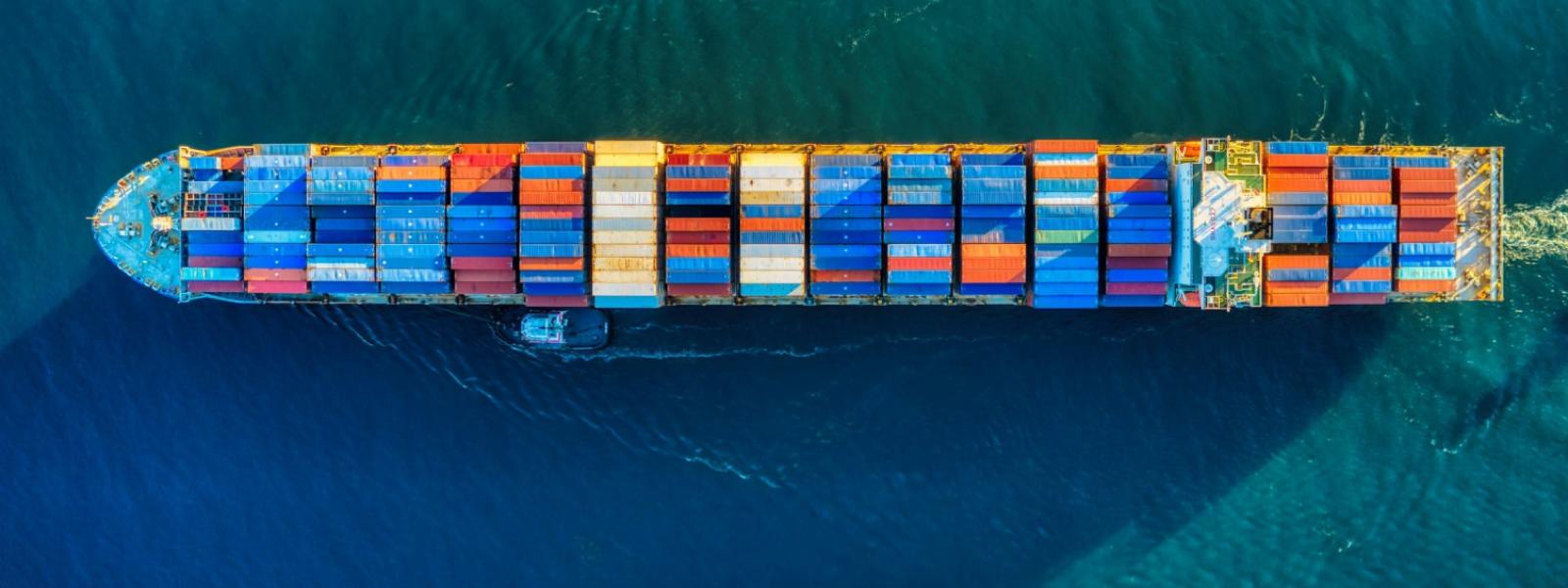
Maritime shipping: what’s being done to reduce emissions?
Photo: Venti Views on Unsplash.Maritime transport is the activity of moving goods from one destination to another by sea. It is fundamental to trade and accounts for 80% of global shipping.
However, it is also a major source of pollution, particularly greenhouse gases that warm the planet and other pollutants that harm human health.
The sector therefore needs to decarbonize its activities by reducing its emissions, both in transport and in the loading and unloading of goods at ports around the world.
How many emissions does international shipping produce?
Every year, 10 billion tons of cargo are transported by sea, accounting for 2.9% of global greenhouse gas emissions - including carbon dioxide (CO₂) - a percentage close to that of Japan. This is because ships use enormous amounts of oil to move, emitting nearly 1 billion tons of greenhouse gases.
The above figures do not include emissions generated at cargo ports, which are not automated and use fossil fuels. The main energy source for ships moving goods around the world is heavy fuel oil, a highly polluting fossil fuel that produces CO₂ emissions that accelerate global warming.
In 2023, greenhouse gas emissions from shipping will be 20% higher than they were 10 years ago, according to the United Nations. And projections published by the European Environment Agency indicate that they could reach 17% of global emissions by 2050 if no action is taken to decarbonize the sector.
The warming and subsequent melting of the Arctic - the geographic region around the North Pole - is evidence of the impact of shipping emissions on the global climate:
- According to the Clean Arctic Alliance, the Arctic —one of the world's most important climate regulators— is warming up to four times faster than the rest of the planet.
- Much of this is due to emissions of black carbon, or soot, from shipping, which is the residue left after heavy fuel is burned on ships.
- Black carbon is emitted in both gaseous and solid forms. As a gas, it contributes to the greenhouse effect in the atmosphere; as a solid particle, it accelerates the melting of snow and ice.
How do ship emissions affect human health?
International shipping generates pollutants such as black carbon and particulate matter that affect human health.
According to the Barcelona Institute for Global Health, which reviewed 32 studies on shipping emissions, the industry could be responsible for an estimated 265,000 premature deaths worldwide in 2020. This means that 0.5% of global mortality would be associated with its emissions.
Although air pollution from shipping is a global problem, it disproportionately affects coastal populations, especially those living near ports and other industrial facilities.
Who is responsible for preventing emissions from shipping?
The International Maritime Organization (IMO) is the specialized agency of the United Nations responsible for setting standards for safe, efficient, and environmentally sound shipping.
In 2023, the 175 countries that make up the IMO agreed to reduce greenhouse gas emissions from industry by 20-30% (compared to 2008) by 2030 and by at least 70% by 2040. The pact is complemented by a target to achieve a zero emissions balance (so that gases released into the atmosphere are neutralized or offset by sinks) by "around 2050."
Within this framework, meetings at the IMO in the coming months and until April 2025 will focus on achieving the decarbonization of shipping through a just energy transition.
During this period, a range of technical and economic measures will be analyzed and discussed to achieve the objectives of the Ship Emissions Reduction Strategy.
The main challenges of these efforts include:
- Meeting market demand for zero emission fuels in the volume required to power the entire global marine fleet.
- Bridging the cost gap between fossil fuels and low-emission fuels.
- Enabling ships to adapt their technology for a rapid transition to cleaner fuels.
The process of decarbonizing maritime transport will require the combined efforts of various actors: States, companies, NGOs, and international governance organizations.
It is a complex process that involves the entire global shipping chain. For the decarbonization of the sector to be equitable, it is necessary to take into account shared responsibilities as well as the different needs and capacities of countries in the face of the costs of phasing out fossil fuels in maritime transport.
It must also consider the impact that global warming is already having on economically and climatically vulnerable countries, such as islands, least developed and developing countries.
Sources
- International Maritime Organization, "Introduction to the IMO".
- Natalie Mueller, "Maritime transport: the forgotten pollution", Barcelona Institute for Global Health.
- Michelle Carrere, "Agreements to reduce shipping emissions considered ‘weak’ by environmental organizations", Mongabay.
-Paula Mateu, "Maritime transport will reduce emissions by 30% in 2030 but NGOs see it as insufficient", La Vanguardia.
Jessica Solórzano

Jessica Solórzano is Ecuadorian and collaborates with AIDA's Ecosystems Program as an economics specialist, working from Belem, Brazil. She graduated as a sociologist from the Pontifical Catholic University of Ecuador and holds two master's degrees, in Socio-environmental Studies (FLACSO Ecuador) and in Territorial Dynamics and Society of the Amazon (UNIFESSPA, Brazil). She also holds a PhD in Sustainable Development from the Federal University of Pará (Brazil). Jessica has significant work and academic experience in extractivism, rural economies and socio-environmental conflicts. She has worked with non-governmental organizations, local governments and with peasant, traditional and indigenous populations in processes of territorial management and social participation from the perspective of ecological economics and political ecology.
